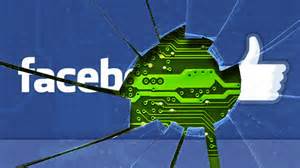Facebook transforms who you are, your likes, dislikes, beliefs and fantasies, all of it into a commodity that it alone owns, 600 million intimate profiles of people like you and me
Many moons ago, when the Web was still in its infancy I wrote that the way the Web was evolving led inevitably to the emergence of monopolies, whether of content or access to information. In the early days it was Portals, or the ‘place’ where you entered the Web eg, Netscape, Microsoft, CNN or whatever, that commanded ‘value’. Success, and hence an implied value, was measured in terms of ‘hits’ or to paraphrase, the proverbial ‘boots on the page’. It was assumed that advertising would be the revenue stream as users clicked on links and hopefully bought stuff.
Back in the 90s, traditional print publishers (many of whom still hadn’t gotten their heads around Quark Xpress or even email) were scrambling to figure out whether the Web was friend or foe? But from the very beginning it favored the big publishers, especially multi-media publishers. They not only had the cash to invest in developing new production tools, more importantly they already owned and had already produced the content. Putting it up on the Web was merely a question of refreezing the content, misleadingly called convergence. In a phrase, a license to print money if you can corner your particular market niche (Facebook’s is apparently a 600 million ‘niche’!)
It’s all down to numbers, so for example, direct mail shots posted to your home have around a 2% (or less) success rate. This means you’ve got to send a lot of mail if you want to make money. Imagine then what is possible if you can just get 1% of Facebook’s 600 million users to click/buy or whatever whilst on FB?
Apparently–though I’m not one of them–there are people who are addicted to FB and spend an inordinate amount of time noodling around the ‘place’, helping create FB’s online ‘culture’ but a ‘culture’ or rather commodity that ultimately belongs not to the users but to Facebook’s shareholders. Social media? I think not.
So for example, FB makes it really difficult to delete the mass of stuff you’ve parked on its servers (it’s taking me the better part of a day to try and clean out my FB account and I’m still not sure I’ve really removed everything). Tim Berners-Lee, one the inventors of the Internet and the Browser has this to say about FB:
“Berners-Lee highlighted Facebook, LinkedIn and Friendster, noting how such sites lock data in. “Your social-networking site becomes a central platform – a closed silo of content, and one that does not give you full control over your information in it.”” — ‘Tim Berners-Lee warns of threats against web‘, PC Pro 22 November, 2010
FB is not doing anything new, it’s just doing it much better than the (already) traditional imitation printed pages of the news and entertainment sites. It’s the nature of the interaction, with the Website acting as a virtually transparent intermediary between people, that’s the secret to the success of FB. And none of it would be possible without Broadband, something that didn’t exist in the early days of the Web except for governments and corporations.
But behind the development of the Web was the driving force of the military and the financial sector. So all the while, banks and financial services plus the largest of the media corps, eg the Wall Street Journal, were busy building globe-spanning infrastructure tied together by satellite and had been doing it since the 1970s. Once the major technical problems had been solved this merry bunch was joined by manufacturing and distribution, eg supply chains. Along with the state and the military, these form the bulk of what we call the Internet. It’s also what makes the capitalist version of globalization possible.
It’s only relatively recently that we’ve seen retailing assume such importance–aided by the death of the High Street and a critical mass of broadband connections as well as more reliable transaction processes–join in the fun of making money out of the Web. Once the technology had gotten sorted, the big retail chains got onboard, essentially refreezing the mall store online, piggy-backing on the infrastructure and stock that already existed just as the print publishers had done a decade earlier.
But as the Web evolved many realized that the real value of the Web lay in the users themselves, or rather the users as data that can be used for marketing and of course, for spying on us, for which the ”social media’ sites are ideal vehicles, especially if nearly everyone uses the same platform. This is why Facebook is so critical with its 600 million users, a sizable fraction of the global population!
But do they still need users to spend money? Not directly though all income is obviously welcome, because on the strength of the ‘goodwill’ value of FB they raised cash to buy real companies that produce useful tools for the Web and digital media in general! Behind this nifty move was Goldman Sachs that has invested a lot of moola in FB ($1.5 billion) and itself is no slacker when it comes to smoke and mirrors.
Why FB took off while others failed to command the Webspace so thoroughly is simply the law of the capitalist jungle. But who cares? FB’s major rival, MySpace (owned by Murdoch’s News Corp), was clunky by comparison and not so ‘usr-friendly’ but by the time it got a Facelift it was too late, FB had reached a ‘critical mass’ of users. So now, when you join the Web and want to connect to your friends, where else would you go but FB? Others are creeping alongside like Linkedin but it targets mainly business users.
 Mouood Mouood English Edition
Mouood Mouood English Edition




